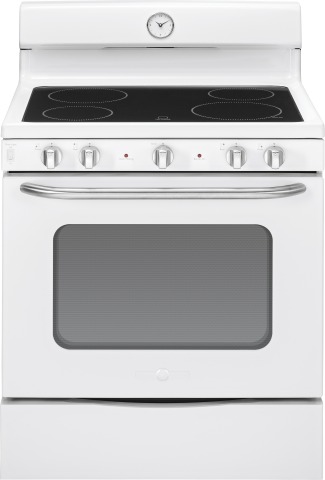Please stop trying to make products for Millennials


There is an e-mail, among the 167,566 others in my inbox right now, that reads like so:
"GE Unveils First Line of Appliances Designed by a Millennial for Millennials."
After reading this, I died a little on the inside.
Allow me to illustrate why designing products for a specific generation is foolish, and why telling your story this way is stupid.
Let's go back to the press release:
"With the introduction of the GE Artistry Series, GE's designers focus on the needs of today's generation of Millennials and their desire to uniquely express themselves."
Hold up:
1.) Millennials have specific appliance needs?
2.) Millennials need to "uniquely express themselves"?
3.) ...with home appliances?
4.) Didn't Madonna's 'Express Yourself' come out in 1989, a Generation X heyday if there ever was one? And isn't Madonna a Baby Boomer? I'M SO CONFUSED.
"Created by a 27-year-old GE industrial designer with his own generation in mind, the Artistry Series provides first-time homebuyers with a distinctive and cool appearance at a price they can afford."
It's a good thing industrial designer Tomas DeLuna didn't create the product line with another generation in mind. Could you imagine a microwave with Ford Country Squire-levels of wood paneling? On the other hand, that could be dope.
"This new line of stylishly sensible kitchen products includes five appliances: a gas range, electric range, bottom-freezer refrigerator, over-the-range microwave and top-control dishwasher."
"Stylishly sensible," by the way, means metallic against a white or black gloss finish, which may have been inspired by Apple's iPhone or the outrageous suits in this 1997 hit single by Puff Daddy.
OK, alright, enough snark. You get the picture. While it is savvy for General Electric to target first-time homebuyers, and not a bad idea to leverage its history as a heritage brand, the entire premise of the above is silly and clichéd.
We need to stop building products for these ridiculous social constructs. Instead, we need to just build better products.
Do people under the age of 30 require different refrigerators than people over 30? Different dishwashers? Ovens? I guarantee that they do not. (That thought you just had about the ratio of beer to food in the fridge, though? Bite your tongue.)
All businesses must confront the reality that Millennials—or Generation Y, or Generation Me, or whatever name is in vogue—will soon make up the majority of their customers. With Boomers at the tail end of their demographic dominance, and Generation X relatively outnumbered, this shift matters to the bottom line.
But businesses do not have to approach this constituency with such primitive, ham-handed tactics, either—the generational equivalent of an English-speaking tourist shouting to a local, "DO YOU UNDERSTAND ENGLISH?!?" ("DO YOU UNDERSTAND 'COOL'?!?!)
My inbox is littered with misguided attempts at appealing to this upcoming generation.
There's the invitation for "Hipsters Hate Cars," a panel discussion with "Millennial experts" hosted by a prominent automotive company. The name stridently equates a caricature of waxed handlebar mustaches and Pabst Blue Ribbon with almost a hundred million Americans who are, quite critically, buying fewer cars than previous generations.
"At no time since President Obama was elected in 2008 have we reported less trust, more cynicism and more partisanship among young voters," reads a second pitch, about a survey on the use of social media in politics to engage voters. This finding ignores the rather pertinent fact that the global economy imploded at that time, leaving most Millennials about to enter the workplace without jobs to apply for.
Another automaker pitched its latest model as coming with "new features specifically targeted to appeal to the urban millennial market," such as "15-inch dubs" that will increase "style street cred." (Note to manufacturer: "dubs" is a slang term for 20-inch rims; "dub" is short for "double," referencing the two. Your "cred" is shot, brah.)
Another survey says, simply: "New research finds that Millennial women, surprisingly, have little interest or desire to assume a top leadership position"—because it would entail a complete sacrifice of one's personal life. The report didn't compare this cohort to any other generation, but found it perfectly satisfactory to convey these results to the world under the headline, "Millennial Women Question Professional Ambition." Yikes.
How can you concoct a business strategy with this kind of data? It's like they're getting this stuff from TIME magazine or something. (Oh, wait.)
Let's return to those home appliances. GE actually reveals its true strategy in one line of its announcement: "Most appliances in this segment of the market have similar features...[this new line of products has an] aesthetic that will stand out in the home and on the retail floor." That's right: this is product differentiation. This is making entry-level appliances look nicer in an attempt to get away from competing on price alone.
So let's stop trying to say that we're building products, services and workplaces for a specific generation. Instead, let's focus on coming up with solutions, real dictionary-definition solutions, for the very real problems people have.
I think members of every generation can agree with that.